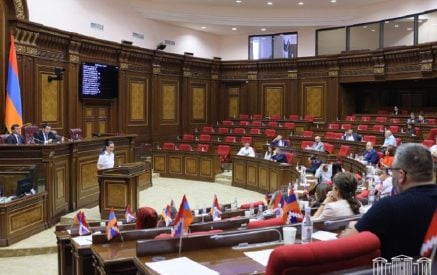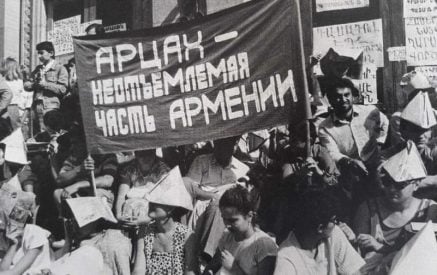Feel other’s pain
Yesterday, I was “caught” by a citizen in the street who expressed his complaint of the following: during the news release, one of my colleagues, telling that a lion or a tiger somewhere attacked a girl and the news started with the following introduction: “now about a sad incident.” “What a sad incident is this if the victim is not an Armenia, – complained my interlocutor, – one should be a bit patriotic.”
Thus, nationalism, according to my interlocutor, is feeling the pain of other nation’s by separating a section from the whole humanity, for whom we should suffer pain and be indifferent to the others. As a standard, it can be adopted not only the national differences but also religious, social, political affiliation and personal preferences: my coreligionists, my political team, my fellow countrymen or social group. Up to “I’m capable of feeling only my pain and I do not care about the rest.” This is the shortest way to be isolated from the world.
Now, when hundreds of thousands of refugees from the Middle East have penetrated into Europe, the attitude of the locals is also dual. On the one hand – to help, provide shelter, to feed, to save people’s lives, on the other hand – “they came in with their odd traditions, half of them are indeed terrorists” and so on. “Modern masses, – wrote Albert Schweitzer still in the middle of the last century, – demand separating national views from the impact of intelligence and morality, considering it the easiest may of not distorting the feelings.” Indeed, a dead-end road.
Read also
Last summer, during the next escalation of the situation on the Armenian-Azerbaijani border, Armenia’s Defense Minister Seyran Ohanyan expressed grief also for the victims of the enemy. It seems to me that this is the right approach. This is how someone strong and self-confident should behave.
The enemy is shooting in the direction of our villages causing widespread destruction and casualties. We have to respond by destroying their villages and killing their soldiers. War is necessary to their leadership based on some political calculations, we do not need war. But I also share the grief of an Azerbaijani villager whose house is destroyed because of this war, I share the grief of an Azerbaijan mother whose son is killed because of the crazy politics of his country’s leadership.
Not everyone in Armenia thinks so and mu words maybe seem “sacrilegious” to some of them. But I can openly express my thoughts, not being afraid of “being put in the pillory.” This is the difference between them and us. And because of this difference, we will always win a victory over them.
Aram ABRAHAMYAN























































